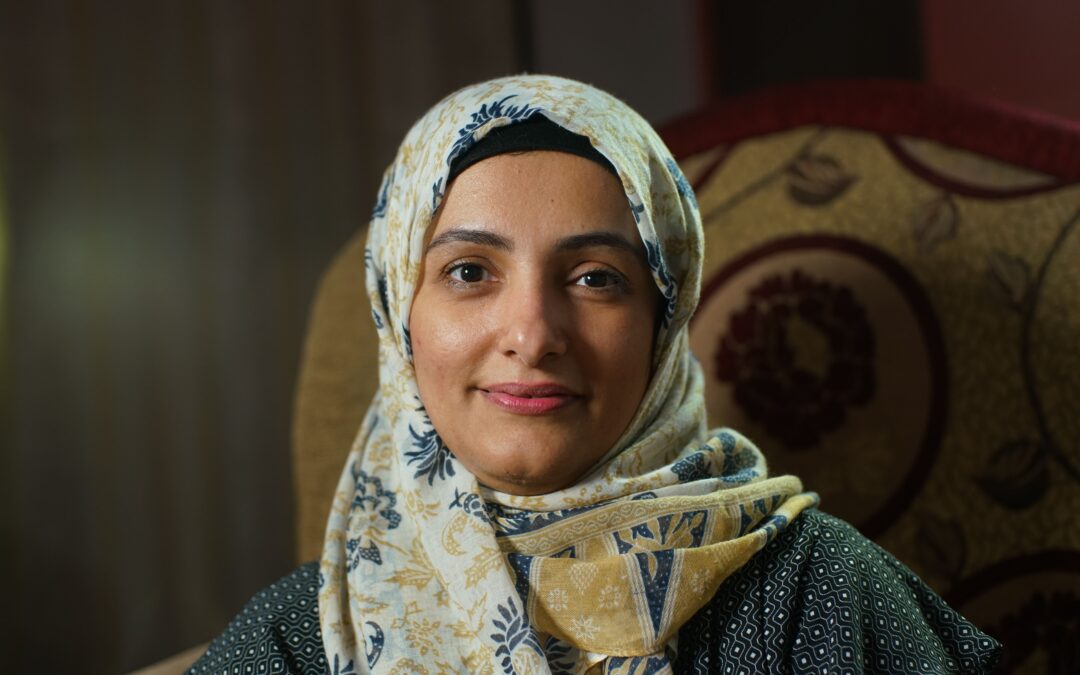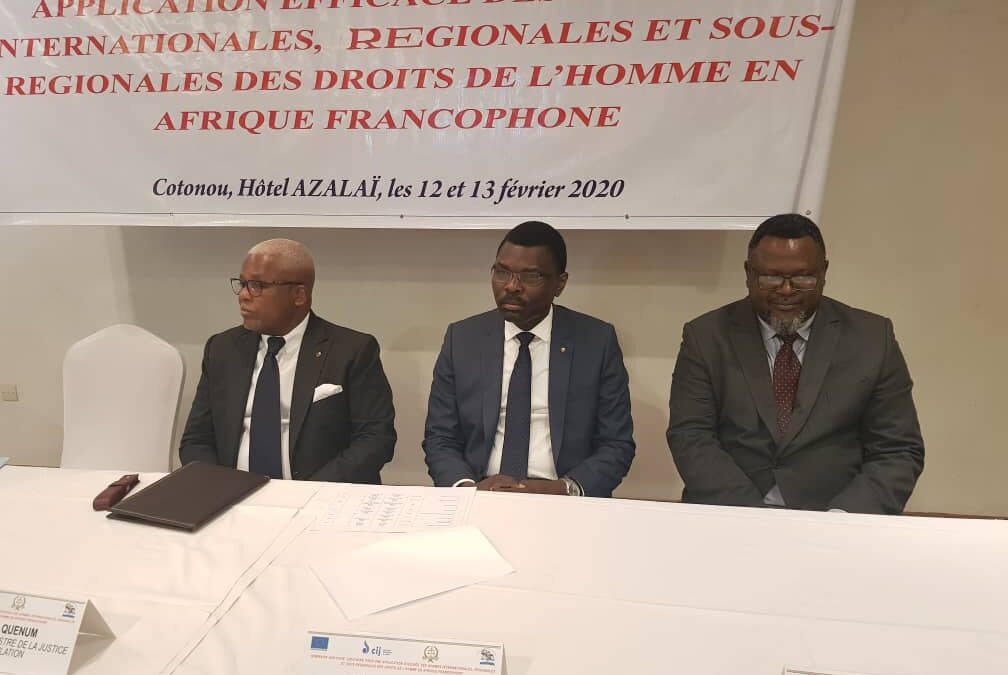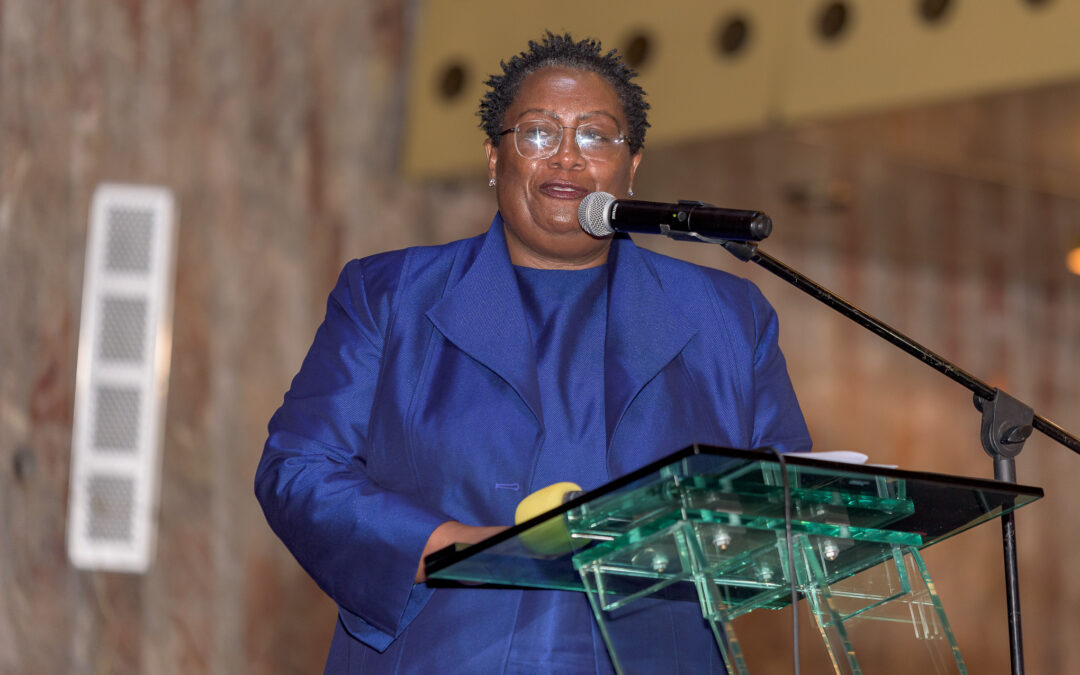
Feb 28, 2020 | News
The ICJ today welcomed the judgement of the Canadian Supreme Court in the Case of Araya v, Nevsun, which allows a civil lawsuit by a group of Eritrean plaintiffs to proceed against Canadian company Nevsun Resources Ltd. for its alleged involvement in forced labour, slavery, torture and other serious human rights abuses against plaintiffs.
The ICJ together with Amnesty International-Canada intervened in the case as a third party, arguing that Canada’s common law should be read in a manner consistent with the right to an effective remedy for human rights violations under international law and the Canadian Charter of Rights and Freedoms.
“This judgment is a landmark achievement for workers and other victims of human rights violations as well for international rule of law and justice,” said Carlos Lopez, Senior Legal adviser at the ICJ.
“The Supreme Court of Canada has shown that misapplied legal doctrine should not stand in the way of people’s right to effective remedy and reparations,” he added.
In the case, the Supreme Court of Canada rejected the company’s contention that the “act of state doctrine” would preclude the case from going forward.
The Court concluded that this doctrine is not in fact part of Canadian law.
The company also contended that the allegations of breach of customary international law could only be applicable to States and not to the company itself.
The Court, however, held that customary international law, including customary human rights law, is part of Canadian law and could apply to Nevsun as a corporate entity.
In a significant victory for the plaintiffs and other similarly situated alleged victims, the Supreme Court has allowed the case to proceed, dismissing jurisdictional and procedural objections from Nevsun.
The proceedings before the Supreme Court originated in an appeal by the defendant company Nevsun Resources Ltd against the British Columbia Court of Appeal’s judgment of 2017 which upheld the rights of claimants to sue in Canada.
The claim filed in 2015 argued that Nevsun Resources was involved in various ways in the practice of forced labour, slavery, torture, cruel, inhuman or degrading treatment, and crimes against humanity at the Bisha mine (picture) against hundreds of Eritreans who were conscripted into the Eritrean National Service Programme and forced to working in the mine operated jointly by Nevsun and Eritrean State companies.
The claimants were allegedly forced to work in the Bisha mine and fled the country to find refuge in Canada, where they sued Nevsun.

Feb 19, 2020 | News
Huda Al- Sarari, Yemeni lawyer and human rights defender, is the 2020 Martin Ennals Award laureate. She was among three women selected as finalists by a jury of ten of the world’s leading human rights organizations, including the ICJ, along with Sizani Ngubane, South Africa, and Norma Librada Ledezma, Mexico.
The 2020 Martin Ennals Award ceremony, co-hosted by the Martin Ennals Foundation and the City of Geneva, was held today, and for the first time in the history of the Award, all three finalists are women.
“Women human rights defenders are subject to the same risks as every human rights defender, but as women, they also face certain forms of violence and violations due to their gender. They are often stigmatized and ostracized by community leaders, faith- based groups and even family members,” said the Mayor of the City of Geneva, Sandrine Salerno.
“The Martin Ennals Foundation is particularly proud to honour and support three resilient women human rights defenders this year, our laureate Huda Al-Sarari, as well as our two finalists Sizani Ngubane and Norma Librada Ledezma for their achievements. We hope that the award will shed a light on their achievements, and strengthen protection mechanisms around them,” said Philippe Currat, President of the Board of the Martin Ennals Foundation.
Huda Al-Sarari is a Yemeni lawyer and human rights defender who graduated in Sharia and Law from Aden University. She also holds a masters in Women’s Studies and Development from the Women’s Centre at Aden University. Over the last years, Huda investigated, exposed and challenged the enforced disappearances that occurred as a result of secret prisons run by foreign governments in Yemen where thousands of men and boys have suffered from arbitrary detention, torture and extrajudicial killings. She collected evidence on more than 250 cases of the abuse taking place within those prisons.
“Being a human rights defender in Yemen is extremely challenging, and being a woman makes this even more difficult. In a male-dominated society, I have to prove myself maybe ten times more than a man,” she said.
Despite the threats, defamation campaigns and sacrifices she and her family endured, Huda continues to stand alongside the families of those who have disappeared.
“Receiving the 2020 Martin Ennals Award for human rights defenders means the world to me. It gives me great strength and emboldens me to continue this fight for justice. I believe the Award will be incredibly important in drawing attention to the continual plight of victims of arbitrary detention, abuse and torture in Yemen,” she added.
“We commend Huda for the work that she conducted, not only against the backdrop of the ongoing Yemeni civil war, but also, in a country where women still struggle to express their political and civil rights. Huda’s legacy is crucial as her thorough investigations and search for accountability will serve to bring justice for human rights violations occurred during the conflict,” said Hans Thoolen, Chair of the Martin Ennals Award Jury.
The two finalists of the Martin Ennals Award this year are Sizani Ngubane (South Africa) and Norma Librada Ledezma (Mexico).
Sizani is a human rights defender who advocates for land rights for women in rural areas on South Africa. She also supports women to access education, and fights for the end of the traditional practice of Ukuthwala, which is the abduction and forced marriage of young girls and women.
Norma is the founder of Justicia para Nuestras Hijas. She has supported over 200 investigations into cases of feminicide, enforced disappearance and human trafficking in Chihuahua, Mexico.
Both were praised by the Martin Ennals Jury member organizations for their commitment and tremendous achievements in their respective countries.
Additional information
The City of Geneva has hosted the Award ceremony since 2008, together with the Martin Ennals Foundation, as part of its deep commitment to the defense of human rights. The support of the City, by means of its Service for International Solidarity, reflects its mission to promote human rights both internationally and
The Jury of the Martin Ennals Award is comprised of ten of the world’s leading human rights organizations: the ICJ, Amnesty International, FIDH, Human Rights First, HURIDOCS, International Service For Human Rights, Brot für die Welt (Bread for the World), Front Line Defenders, Human Rights Watch and the World Organization Against Torture.
Download
Universal-MEA2020bios-News-2019-ENG (full bios of finalists, in PDF)
Universal-MEA2020winner-News-Press releases-2019-ARA (full story in Arabic, PDF)
Universal-MEA2020bios-News-2019-ARA (full bios of finalists, in Arabic, PDF)
Contact
Olivier van Bogaert, Director Media & Communications, ICJ representative in the MEA Jury, t: +41 22 979 38 08 ; e: olivier.vanbogaert(a)icj.org
Watch the ceremony as it happened
https://www.facebook.com/MartinEnnals/videos/2552501445008021/

Feb 13, 2020 | News
From 12-13 February, the ICJ, in collaboration with the Supreme Court of the Republic of Benin and the African Association of the Francophone Higher Jurisdictions, hosted regional judicial dialogue and training for effective implementation of human rights in francophone Africa in Cotonou.
The President of the Constitutional Court of Benin, Justice Joseph Duogbenou, the Vice President of the ECOWAS Community Court of Justice, Justice Ouattara Gberi Be and the President of the High Court of Benin, Lady Justice Marie Cecile de Dravo Zinzindohoue were among the participants.
Judges and other jurists representing the Supreme Courts and Constitutional Courts of Benin, Burkina Faso Cameroon, DR Congo, Gabon, Guinea, Côte d’Ivoire, Mali, Niger, Senegal and Togo also participated.
President Patrice Talon, who was represented by the Minister of Justice and the Legislature, M. Maxime Ouenum, opening the ceremony, noted that ‘fundamental rights and freedoms are binding on legislative, executive and judicial authorities because of the Constitutional, Conventional and National protection they enjoy’. They therefore ‘create obligations on states and on those who act on behalf of states, they cannot be ignored, denied or discarded’.
President of the Supreme Court of Benin, M. Ousmane Batoko emphasized the need to strengthen the capacity of judges for a more effective application of international human rights law in domestic adjudication. According to Justice Batoko, ‘The judge is at the very heart of the day to day construction and perpetuation of international human rights law.
‘’The protection of human rights goes beyond international and national legislation, and requires active protection by judges in the court rooms across Africa‘‘ said Arnold Tsunga, ICJ’s Africa Regional Director. He expressed hope that the dialogue would help to ensure that African peoples enjoy their human rights in totality. “The architecture for the protection of human rights can only be effective when national judges are equipped to play the very vital role that they have as the first layer of protection available to victims of human rights violations,“ Tsunga added.
At the end of the two-day programme which included lectures and judicial conversations, participants adopted a communique in which they affirmed their continued commitment to the promotion and protection of human rights in Africa expressing a desire for such colloquia to be held more frequently in order to build the capacity of the judiciaries in West Africa.
Contact
Arnold Tsunga, ICJ Regional Director for Africa, t: +27 716405926 or +263 777 283 249: e: arnold.tsunga@icj.org
Solomon Ebobrah, Senior Legal Adviser (ARP), t: +234 803 492 7549, e: Solomon.ebobrah@icj.org

Jan 30, 2020 | News
The ICJ, in collaboration with the Zimbabwe Judicial Service Commission (JSC), convened an Anti-Corruption workshop from 27-30 January 2020.
The objective was to enhance the capacity of judicial and law enforcement officials and prosecutors in respect of their roles in anti-corruption prevention and enforcement and cyber-crime investigation.
The workshop was led by Hon. Justice Lawrence Gidudu, the Head of the Anti-Corruption Division of the High Court in Uganda, who was assisted by Moses Modoi a lawyer specializing in research and capacity building that supports anti-corruption courts.
In his keynote address, Hon. Mr Justice L. Malaba Chief Justice underlined that participation by key justice actors showed commitment towards the fight against corruption.
He noted that the education and training aspects aimed to create a common understanding of standards and techniques to be applied when handling corruption matters.
He expressed the sentiment that there were lessons to be learned from the Ugandan Court which currently has had a high success rate in corruption cases.
The training workshop is part of the ICJ’s wider efforts to ensure access to justice for all in Zimbabwe and elsewhere.
The main focus here was on the global outlook and emergency of anti-corruption action; analysis of municipal Anti-Corruption legislation; managing trials in anti-corruption courts, corruption as a transnational crime, admissibility of digital evidence; asset recovery and ethics and integrity.
There were 49 participants in the portions of the workshops from 27-28 January, including 18 women, comprising Judges from the Zimbabwe High Court; Regional, Provincial and Senior Magistrates; and Registrars from the Superior Courts.
Photo: Justice Loice Matanda-Moyo, Chairperson for the Zimbabwe Anti-Corruption Commission Justice Loice Matanda-Moyo

Dec 10, 2019 | Multimedia items, News, Video clips
Today, the ICJ launched the animated video titled “UN Committee Recommends Socio-Economic Rights Protections in South Africa” in commemoration of International Human Rights Day, at an event sponsored in collaboration with local partner Lawyers for Human Rights (LHR).
With support from the European Union (EU), the ICJ and LHR have been jointly implementing a project promoting the protection of Economic, Social and Cultural Rights (ESCR) over the last three years.
The project included workshops co-ordinated by the ICJ and LHR on the protection of ESCR with magistrates, lawyers, paralegals and civil society organizations. As part of the project published a detailed Guide for the Legal Enforcement and Adjudication of Economic, Social and Cultural Rights in South Africa to assist legal practitioners, including magistrates, lawyers, paralegals and civil society, in understanding and applying international and domestic legal standards relating to ESCR. The ICJ also joined other local and international organizations in making submissions to the UN Committee on ESCR, which ultimately informed the Committee’s recommendations to South Africa.
During the event 10 December event in Pretoria, the LHR launched the documentary “Everyone Lies to Popo Molefe”, which tells the true story of the community’s struggle to basic services. Members of the Popo Molefe community were guests of honour at the event, which was also attended by a representative of the South African Human Rights Commission.
“If we can have roads, water and electricity… We are struggling without electricity. This situation we are living in is not good. I wish the President could see this documentary,” Popo Molefe Community Leader Kgomotso Susan Nkolisa said.
The ICJ’s animation explains in simple terms the recommendations made by the UN Committee on Economic, Social and Cultural to the government on South Africa.
These recommendations are based on the international standards and protection of the rights contained within the International Covenant on ESCR ratified by South Africa in 2015.
The animation uses illustrative examples of South Africa’s obligations under the Covenant relating to housing, education and just and equitable wages, urging viewers to hold government accountable for the implementation of the UN Committee’s recommendations.
Watch the animation









